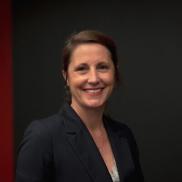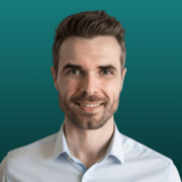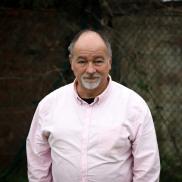

A taste for research
Throughout my years at EM Normandie, I was deeply influenced by the encounters I made there. These moments shared with fellow students became solid relationships, with friendships that are still with me today and precious links in both my personal and professional spheres. These encounters have been an engine of growth for me, giving me the opportunity to broaden my outlook and reflect on my professional future. My Master 2 year in particular played a decisive role, as it enabled me to build relationships and develop in-depth thinking about my future career path.
Choosing a thesis: an unexpected decision
Today, I'm a PhD student at the University of Caen and my thesis supervisor is based at EM Normandie. I have to admit that when I started my studies I never imagined that academic research would be part of my career. When I arrived, continuing with a thesis was not even an option that I had considered. The decision to go down this research route came as a real surprise, just when I was ready for it. I had enrolled in a Master 2 course entitled ‘Strategy, Development and Territory’, run by committed and inspiring teachers such as Fabien Nadou, Florian Favreau, Marine Bastiege, Sébastien Brodin and Ludovic Jeanne. Their guidance has enabled me to discover new interests and consider perspectives that I would never have thought of without them.
The role of business intelligence in my career
One particular course has influenced the path my career has taken: economic intelligence, taught by Ludovic Jeanne. Today, this field is at the heart of my thesis, and has become the central subject of my research.
What fascinates me about business intelligence is its cross-disciplinary approach, making it possible to understand corporate strategy from a variety of angles and apply it to a wide range of contexts. It's a broad field, encompassing strategic tools that can be used by any type of manager.
Thanks to this course, I was able to find my way in a field that is both complex and deeply useful, and the Masters enabled me to explore this interdisciplinarity in even greater depth, which laid the foundations for my thesis.
The path to a CIFRE thesis: milestones and challenges
My entry into a thesis under the Contrat Industriel de Formation par la Recherche (CIFRE) programme required me to go through a number of demanding phases. The process begins with the submission of a complete file, including a CV, covering letter, transcripts and final dissertation. There is also a ten-page personal presentation in which the applicant explains how he or she sees the research topic. Once the application has been validated, an oral interview is organised with the future thesis supervisors and the director of the doctoral school. For me, this stage took place at the University of Caen. The process is selective, and candidates must show a deep understanding and clear motivation for their subject. If they are successful, the path opens up, with a rewarding research opportunity that is financially supported, in my case by the Conseil Régional de Normandie.
A thesis based on professional practice
Unlike what you might think, a thesis is not just a theoretical exercise. It is closely linked to the professional world, and I don't feel in any way disconnected from my former colleagues who are now working in private or public companies. My day-to-day life is certainly different, but I don't feel like I'm following a classic academic path.
The ability to give classes myself, whether at EM Normandie or at university, means that I'm part of a dynamic of sharing and teaching. This immersion in the role of teacher gives me a direct link with professional realities, while passing on my passion for economic intelligence to students.
Life as a doctoral student: between research and teaching
The day-to-day life of a PhD student is highly varied and constantly changing. Now that I'm in the second year of my thesis, I'm discovering new facets of the job every day. Reading, analysis and writing are at the heart of my activities, practices that you don't often come across in a business career and that require continuous learning. The life of a doctoral student also includes an essential relational dimension: laboratory life, office life and, above all, regular interaction with your thesis supervisor. This relationship is extremely valuable, as it allows you to learn continuously and to perfect your practices.
Teaching courses in the field of business intelligence adds value to my day-to-day life, because the questions I get from students are a real stimulus for me to develop my approach.
Teaching: a continuous learning process
Teaching has given a new dimension to my academic career. The courses I gave in economic intelligence and territorial intelligence to Master 1 and Master 2 students at EM Normandie gave me the opportunity to challenge myself constantly. This contact with the students is essential, as they ask questions that sometimes question the knowledge they have already acquired. Each interaction is an opportunity to revisit the concepts of my subject, and these exchanges enhance the transmission and strengthen my own understanding of the subjects covered.
A demanding and stimulating daily routine
Contrary to popular belief, the life of a doctoral student is neither isolated nor strictly theoretical.
My days are filled with interactions with professionals from the socio-economic world, entrepreneurs and managers, each of whom brings a unique perspective to my research.
Moving from reading and writing to teaching and then to discussions with people active in the field requires a great deal of mental adaptability, which makes everyday life stimulating and rich in learning. For me, this path, although demanding, is an inspiring and challenging experience.
Advice for future students
If I could go back in time, I would advise myself to cultivate an even more open mind. During the years at EM Normandie, it's easy to get trapped in a bubble where the same ideas and perspectives are constantly circulating. Exploring a variety of subjects, debating social issues and, above all, reading more are all ways of confronting different points of view and enriching your own career. Higher education offers a unique opportunity to open up to other horizons, and it's by discovering new avenues of thought that you get the most out of these years.
Testimonies
See all testimonies-

Caroline Lemercier
From EM Normandie to Brand & Design Director
Caroline Lemercier, who graduated from EM Normandie in 2010, tells us about her career path. From her gap year between Paris and Los Angeles to her eight years in an advertising agency before joining Meetic, her career illustrates the importance of curiosity, adaptation and meeting new people.
-

Bruno Roy
Reinventing yourself thanks to EM Normandie
After a 15-year career, Bruno left everything behind to go back to school and become independent thanks to EM Normandie's Master in Management. Find out how this holistic programme enabled him to reinvent himself professionally and become the top student in his class.
-

Julie Erikssen
Singer
She tells the story of her career path from the EM Normandie to the stage of The Voice, passing through the high places of French and American jazz.
-

Delphine Cudelou
Director General, Chamber of Notaries, Court of Appeal of Caen
She explains how she has built up a powerful network. In just a few years, she has gone from a communications position to general management in the notary's field.
-

Christelle Dorange Findeling
Line Pilot
Graduated in 1991, she discovered the world of aviation thanks to the Junior Entreprise of EM Normandie. She tells us all about her journey to reach her dream job.
-

François Patissier
Actor
After working for several years in advertising, he followed his vocation to become an actor, his passion for over 25 years.